Center Director and W. Patrick McGinnis Professor of Marketing Seethu Seetheraman formally launched the Center for Customer Analytics and Big Data (CCABD) at it’s launch event titled, “Big Data Dilemmas & Little Data Discoveries: Understanding the Data-Driven World & its Outcome Value to Your Business” on Monday, September 28 at Emerson Auditorium in Knight Hall. In his opening remarks, Seetherman explained that the CCABD was created to work toward greater understanding of the data driven world. “Why customer analytics? Because we have to determine which is the right model to solve the business problem, and to take advantage of existing knowledge of the problem and solutions.” He also provided a now commonplace definition of Big Data, which is characterized by Volume, Variety and Velocity.
Warren Berger, author of A More Beautiful Question: The Power of Inquiry to Spark Breakthrough Ideas contributed to the introductory remarks via Skype (photo above), by encouraging the audience made up of professionals, students and faculty to be persistent in asking fundamental questions such as “Why?”, “What if?” and “How?” in business and with data. He said, “Questioning is an app we are born with. It begins to manifest itself at a very early age. Between the ages of 2 and 5, kids ask 40,000 questions. As we get older, we become less inclined to question everything. More inclined to accept things at face value. If you do this in business, you’re not going to be innovative.”
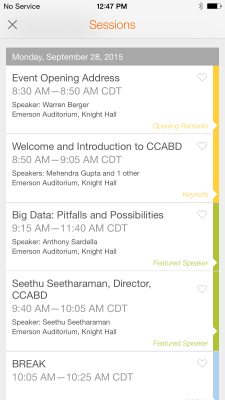
Event Agenda appeared on the Event App by Bonfyre.
Speakers at the event included a wide range of data experts from small companies such as Evolve 24 and Alix Partners, and large companies including Boeing and IBM.
In addition, Laura Tellman, EMBA 43 and Director Clinical Informatics at BJC Healthcare delivered a presentation called “Accelerate Analytics with Data Governance” on how organizations can begin the daunting task of building a practice to govern their data.
Event attendee Victoria Busch is in Communications at Ameren Illinois and is on the Advanced Metering Project.
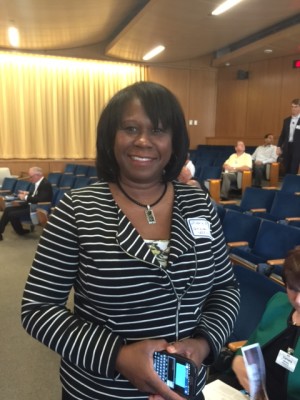
Victoria Busch of Ameren Illinois.
She said, “Big Data is really important to us because we’re trying to make sure that we can build those relationships with our customers, to interact with them better, and provide them better self service tools. We’re using customer segmentation to help drive this effort and we want to make sure that we’re using the right data to communicate with the right customer with the right message.”
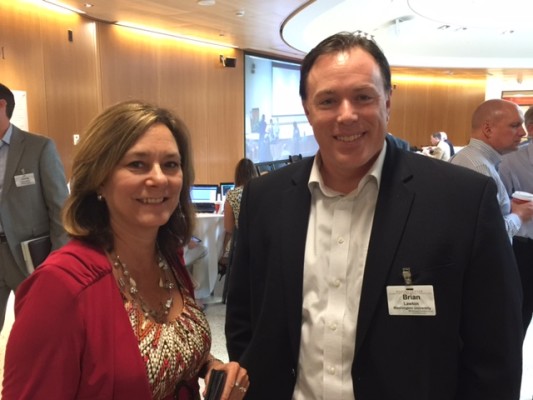
Jean Shuler and Brian Lawton of Washington University Information Technology (WUIT).
Brian Lawton and Jean Shuler, both of Washington University Information Technology (WUIT) also attended the event and are eager to bring the advantages of understanding big data to the IT organization. Brian said, “I’m here to try to find ways to help build internal user communities around big data.” Jean added, “I’m trying to work with our internal clients as well, trying to help them figure out how to look at their data and be able to make effective decisions with it. This is a way to get ahead of the curve and have more insight into what can be accomplished instead of just getting the data together, but figuring out how to break through it.”



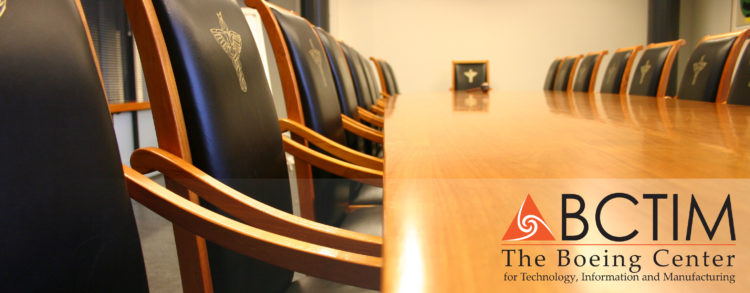






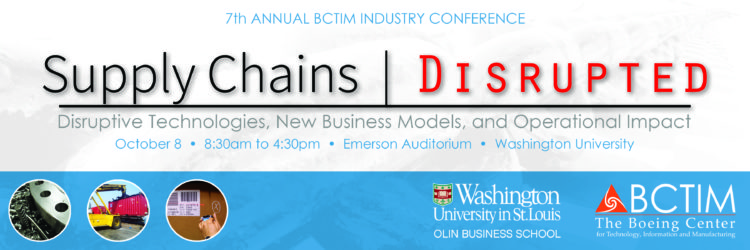
 Throughout the day, the angles of the shadows outside grew shorter, and then longer again, as theoretical and practical knowledge was transmitted between supply chain practitioners. After a warm welcome address from Prof. Panos Kouvelis, the director of BCTIM, the attendees settled in for what would be a full day.
Throughout the day, the angles of the shadows outside grew shorter, and then longer again, as theoretical and practical knowledge was transmitted between supply chain practitioners. After a warm welcome address from Prof. Panos Kouvelis, the director of BCTIM, the attendees settled in for what would be a full day.








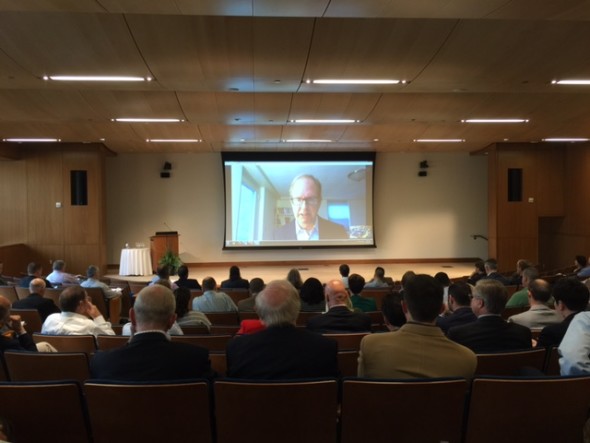



 At one of the tables, Professor Panos Kouvelis, director of BCTIM and co-author of the featured paper titled “Hedging Commodity Procurement in a Bilateral Supply Chain,” looked on with a nod of approval. Around the room, he observed brows furrowed in concentration and eyes squinting to focus on plotted lines dancing between X and Y axes like butterflies on a barbed wire fence. The research was complex and timely, thus it’s selection for the Praxis series, but the purpose of the presentation was to cover the salient points so as to give the audience some practical knowledge to carry back to the workplace.
At one of the tables, Professor Panos Kouvelis, director of BCTIM and co-author of the featured paper titled “Hedging Commodity Procurement in a Bilateral Supply Chain,” looked on with a nod of approval. Around the room, he observed brows furrowed in concentration and eyes squinting to focus on plotted lines dancing between X and Y axes like butterflies on a barbed wire fence. The research was complex and timely, thus it’s selection for the Praxis series, but the purpose of the presentation was to cover the salient points so as to give the audience some practical knowledge to carry back to the workplace.

